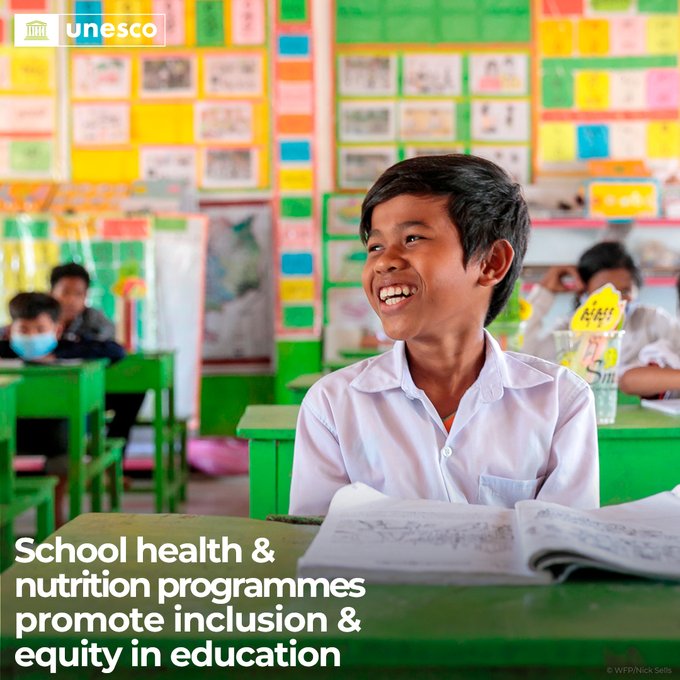|
Getting your Trinity Audio player ready...
|
While investing in school health and nutrition has a significant positive effect on children’s academic achievement, 1 in 3 schools in the world still lack access to drinking water and basic sanitation facilities, according to a new report to be launched on 8 February by UNESCO, UNICEF, and the WFP.
“Students learn best in safe and healthy schools. Yet too many educational institutions lack the means to assure good health and well-being, including essential drinking water and sanitation facilities. UNESCO and its partners are calling on the international community to support countries in their investments in health, nutrition, and social protection at school – because children deserve an environment where they can reach their full potential,” said Audrey Azoulay, UNESCO Director-General.
The report, ‘Ready to learn and thrive: School health and nutrition around the world’ shows that the provision of school health and nutrition incentivize children to come to school and to stay there. School meals alone increase enrolment and attendance rates by 9% and 8%, respectively.
De-worming and micronutrient supplementation can result in pupils attending school for 2.5 additional years in places where anaemia and worm infections are prevalent. The report also addresses other issues such as the promotion of eye care, mental health and well-being of children and the prevention of school violence.
The report underlines that all these measures represent a significant return on investment for countries, in addition to improving the daily lives and study conditions of children. For example, school feeding programmes deliver US$9 in returns for every US$1 invested, and school programmes that address mental health can potentially provide a return on investment of US$21.5 for every US$1 invested.
Insufficient and unequal investment
If 9 out of 10 countries around the world invest in school health and nutrition programmes, these investments are unequal from one region to another and often insufficient compared to the needs. Stronger commitment from national governments and support from the international community are essential. Globally, only US$2 billion is invested each year in addressing the health needs of school-age children and adolescents, whereas some US$210 billion is spent on educating this age group in low and lower-middle-income countries.
Currently, almost 1 in 3 schools (31%) do not have safe drinking water and basic sanitation facilities. This means that an estimated 584 million children have limited or no access to basic drinking water services at school; 2 in 5 of these children live in sub-Saharan Africa. And while almost all countries in the world provide school meals, an estimated 73 million of the most vulnerable children still do not benefit from these school feeding programs on the ground.
Affordable concrete solutions to meet local needs
UNESCO, UNICEF and WFP appeal to the international community, countries and partners to step up actions to protect and promote the physical and mental health, nutrition, well-being and development of all learners. All stakeholders are urged to focus on key interventions appropriate to local contexts and needs, including the provision of school meals; vaccinations; de-worming; psychosocial support; skill-based health education that enables learners to lead healthy lives; and safe and inclusive learning environments that promote health and well-being.






